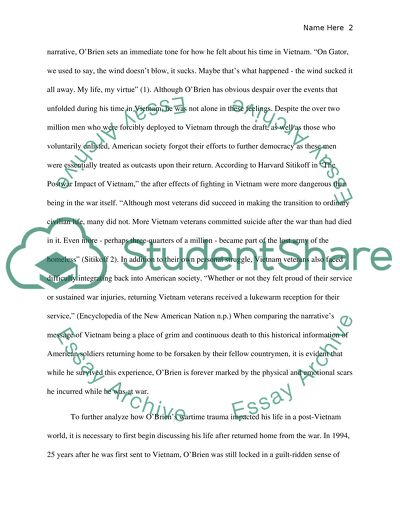Cite this document
(“Love Lost for Vietnam: A Contextual Analysis of The Vietnam in Me Essay”, n.d.)
Love Lost for Vietnam: A Contextual Analysis of The Vietnam in Me Essay. Retrieved from https://studentshare.org/literature/1585209-contextual-analysis-essay-about-the-vietnam-in-me
Love Lost for Vietnam: A Contextual Analysis of The Vietnam in Me Essay. Retrieved from https://studentshare.org/literature/1585209-contextual-analysis-essay-about-the-vietnam-in-me
(Love Lost for Vietnam: A Contextual Analysis of The Vietnam in Me Essay)
Love Lost for Vietnam: A Contextual Analysis of The Vietnam in Me Essay. https://studentshare.org/literature/1585209-contextual-analysis-essay-about-the-vietnam-in-me.
Love Lost for Vietnam: A Contextual Analysis of The Vietnam in Me Essay. https://studentshare.org/literature/1585209-contextual-analysis-essay-about-the-vietnam-in-me.
“Love Lost for Vietnam: A Contextual Analysis of The Vietnam in Me Essay”, n.d. https://studentshare.org/literature/1585209-contextual-analysis-essay-about-the-vietnam-in-me.


